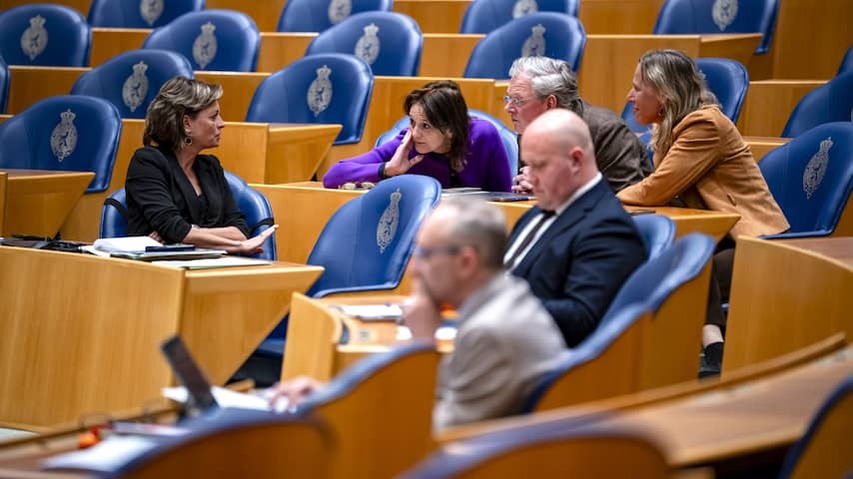
The House of Representatives will vote on Tuesday afternoon on the NSC’s plan to allow people to choose whether they want to transfer their pension money to the new system. The proposal caused a lot of controversy and divides the House to the core.
About 2.5 years ago, the House of Representatives approved the new pension law. The old system no longer fit the modern labor market and needed to be renewed.
In the new system, people get their own pension fund, and the benefits will fluctuate more with the stock market. The first funds have already made the switch. The rest are in the middle of the transition.
As a participant in a pension fund, you cannot now decide for yourself whether your money will go to the new system. The so-called individual right of objection has been deliberately removed to simplify implementation. The NSC now wants to arrange this after all.
MP Agnes Joseph has defended her proposal with passion in recent times. The House will vote on Tuesday. It depends on DENK whether the plan gets a majority. The consideration of the three-member faction will be decisive.
NSC Minister stands Diametrically opposed to his own Faction
The much-discussed proposal has unleashed a lot. The opponents in the House reacted furiously and had no good word for the plan. They find it objectionable that Joseph is turning the transition to the new system upside down.
In recent months, there has also been considerable criticism from the sector, from the Council of State (RvS) and the supervisors, such as De Nederlandsche Bank (DNB). They all agree: the plan causes chaos, delays and brings high costs for the pension funds. That bill will end up with the participants.
Also, NSC Minister Eddy van Hijum, who is in charge of pensions, among other things, is diametrically opposed to the NSC faction. He has fundamental objections because, according to him, the participation proposal undermines the collectivity of the pension system.
The minister also fears a two-year delay, legal problems, and high costs. According to him, arranging participation is not so easily arranged. Extra laws and regulations are needed to implement the NSC’s plan, Van Hijum emphasized.
Supporters Sweep Objections Off The Table
Joseph sees her proposal as just a minor change. She persisted and emphasized time and again during the heated debate that it can indeed be simple.
PVV, BBB, SP, and Party for the Animals (PvdD) support NSC. These parties also believe that people should be able to decide for themselves about their “deferred wages”, i.e., their property. Forum for Democracy (FVD) is also expected to join this list.
To gain a majority, DENK must also support the plan. The party finds Joseph’s proposal sympathetic, but also hinted during the debate that it is sensitive to the minister’s arguments.
If the DENK faction votes against, the camp of supporters and opponents is exactly the same size. In the event of a voting result of 75-75, the House must vote again. If the outcome is the same again, the proposal is rejected.
In a roll-call vote, the outcome may be slightly different. The members of Parliament then vote not per faction, but each for themselves.
If the plan survives the vote, it must also be piloted through the Senate. The supporters do not have a majority there, which means that there is a chance that it will still be rejected.